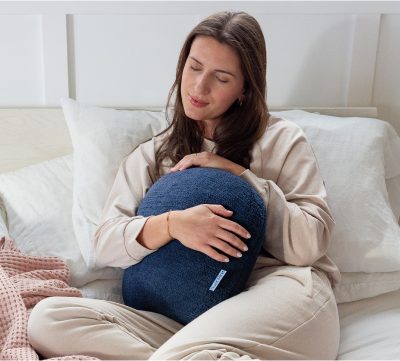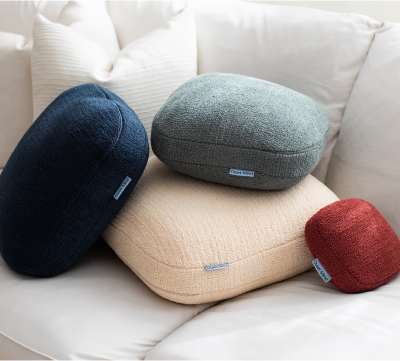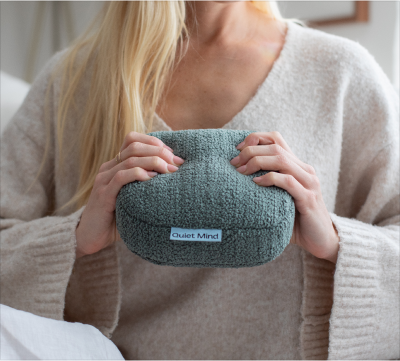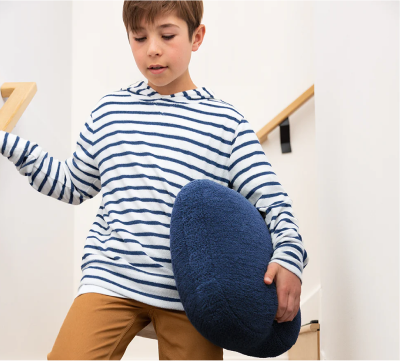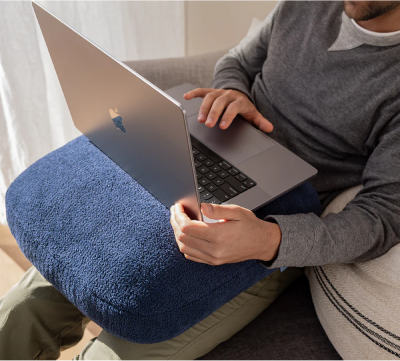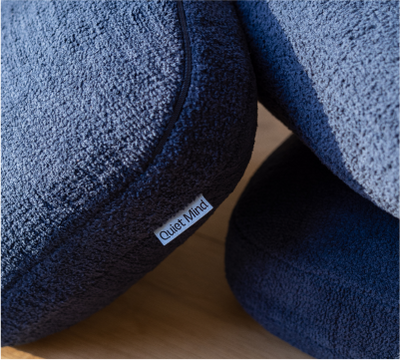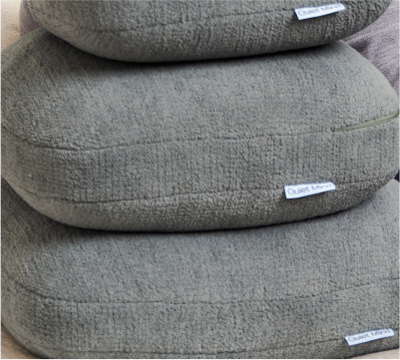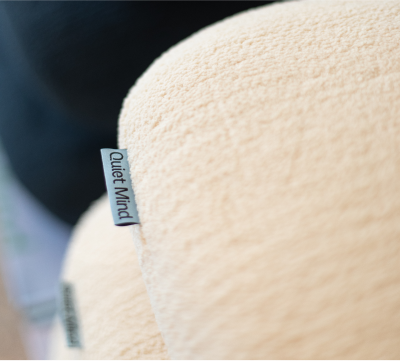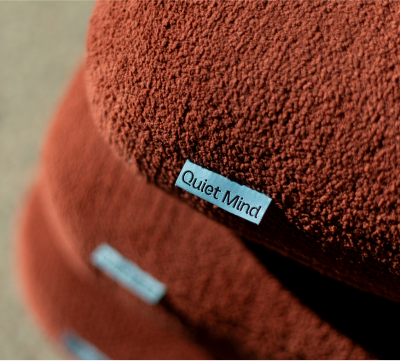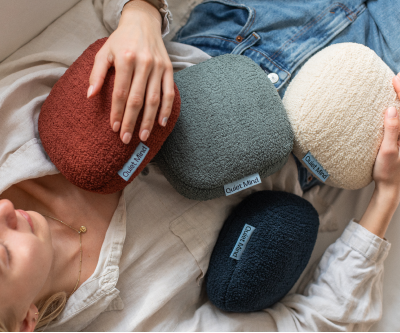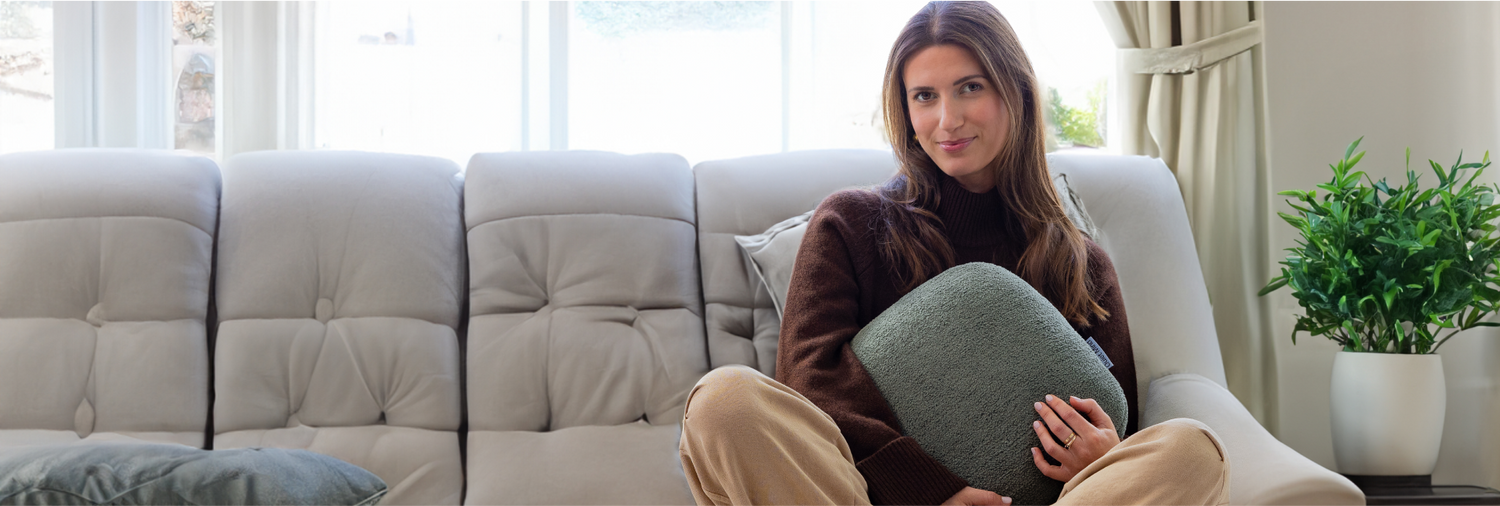From the moment a baby is born, physical touch helps them thrive. And while we may not realize it, this innate need continues throughout our entire lives. When we are touched, even platonically, it lowers stress and triggers the release of feel-good neurotransmitters in the body.
Going for short periods without physical contact is normal, but going for long periods of time without physical touch can lead to something called touch starvation, also known as “touch deprivation” or “skin hunger.” It may not sound like a big deal, but being touch-starved can have a variety of negative mental, emotional, and even physical impacts.
Whether you feel it intensely or it’s just a nagging feeling in the background, touch starvation can leave you feeling lonely and isolated. Let’s talk about why touch is important, how to cope with being touch-starved, and what to do when you can’t find relief.

Why is Touch So Important?
Humans are wired for physical touch. Physical contact activates the vagus nerve, lowers blood pressure and heart rate, and promotes relaxation and calm. It also reduces levels of cortisol (the stress hormone) and stimulates the release of oxytocin (the “love hormone”).
Oxytocin is one of the most essential neurotransmitters because it helps regulate our moods and make us feel happy. It signals feelings of trust, safety, and a sense of belonging. On the other hand, increased cortisol levels lead to anxiety, depression, insomnia, and a weakened immune system.
By helping to regulate these hormones, touch promotes a sense of calm, safety, and relaxation. It also encourages a sense of connection between individuals, which is why it’s such an integral part of close relationships.
7 Ways to Cope with Touch Starvation
It’s important to know that touch starvation doesn’t have to last forever, even if you’re not in a relationship. There are many ways to bring the comfort of physical touch into your life. These strategies can help you feel more connected and alleviate the adverse effects of touch deprivation.
Let’s explore seven effective methods to cope with being touch-starved and improve your overall well-being.
Connect with Friends and Loved Ones
Connecting with friends and loved ones can help you feel less lonely. Even if they can’t be there in person to hug you, chatting with someone you love can be almost as beneficial.
Call or video chat with those you care about often to strengthen the sense of connection. While it can’t replace physical contact, seeing a loved one's face or hearing their voice can help you feel more connected and supported.
Text messaging and social media can also be an easy and convenient way to maintain an ongoing
connection throughout the day. Sharing updates, commenting on posts, and engaging in conversations can strengthen bonds and keep you connected when face-to-face contact isn’t possible.
Sleep with a Weighted Pillow
Sleeping with a weighted pillow provides Deep Pressure Stimulation , a type of therapy that applies gentle pressure to the body and calms the nervous system. The weight of the pillow can help you feel like you’re cuddling up to someone and give your body a sense of safety.
Hug the pillow , hold it across your chest, or wrap your body around it to mimic the sensation of being held. The soothing pressure of the Original Weighted Pillow can improve sleep quality by helping you relax more deeply, further enhancing your overall mood and well-being.
Explore Pet Therapy
Dogs and cats are warm-blooded, furry, soft, and non-judgemental. They offer unconditional love and companionship, and interacting with them can provide many of the same benefits as a human touch.
For example, petting or cuddling a pet can stimulate the release of oxytocin, just like physical touch from another human. Time spent with a pet can also reduce feelings of loneliness or isolation, provide comfort when you’re feeling sad or stressed, and reduce feelings of anxiety, stress, and depression.
If you don’t have a pet of your own, consider volunteering at an animal shelter or offering to take a friend’s dog for a walk while they’re at work.
Engage in Self-Care Practices
A soothing self-massage can help to release tension and mimic the feeling of being touched. Sit in a comfortable position and massage your feet, legs, hands, arms, neck, and shoulders for 10-15 minutes or until you feel relaxed and comfortable.
If it’s in the budget, consider booking a professional massage instead. Or, try wrapping yourself in a big bear hug or taking a warm bath or shower to simulate the feeling of being touched.
Other self-care practices, like yoga, meditation, or journaling, can also be beneficial for reducing stress and helping you feel more connected to your mind and body. They can help mitigate the effects of touch deprivation and provide, as well as anxiety and depression.
Utilize Sensory Stimulation
Listening to certain sounds can trigger an Autonomous Sensory Meridian Response (ASMR) in some people. ASMR stimulates the part of the brain that is associated with touch and connection. It can calm the body and mind, reduce stress, and help you fall asleep.
Sounds like whispering, tapping, or gentle tingling can have a calming effect for many, but there are thousands of ASMR videos available on YouTube. You may have to experiment to find one that works for you, but it’s worth the effort.
Communicate with Your Partner
Yes, touch starvation can happen even when you’re in a relationship. Maybe you’re going through a stressful time, you’re just plain busy, or there are unresolved conflicts in your relationship that are leading to a lack of interest in being physical.
Clear, open, and honest communication is the most effective way to address this issue. If it seems like your partner is touching you less, share your observation with your partner, talk about what might be happening, and work together to find solutions.
Stay Active and Engaged
Exercise is a proactive and healthy way to manage the feelings of touch starvation and improve your mental health. Physical activity boosts oxytocin levels and reduces cortisol, just like physical touch.
But that’s not the only benefit of exercise for touch starvation. For example, exercises like walking and yoga can stimulate various pressure receptors under the skin, helping to reduce stress hormones and slow the nervous system. Workout classes also allow for social interaction, helping you feel less lonely.
Activities like yoga and tai chi emphasize the mind-body connection, encouraging engagement and self-awareness to reduce feelings of disconnect. Exercising outdoors can further enhance the benefits because nature has a calming effect on the body and mind.
How to Know You’re Touch Starved
Recognizing the signs of touch starvation can help you implement effective coping strategies. Here are some common indicators that shouldn’t be ignored.
Increased Stress, Anxiety, and Depression
An ongoing lack of physical touch can lead to elevated stress levels and contribute to feelings of anxiety and depression. If you find yourself experiencing persistent negative emotions, consider whether touch deprivation might be a contributing factor.
Low Self-Esteem and Lack of Social Connections
Touch deprivation can impact self-esteem and lead to feelings of inadequacy or unworthiness. Additionally, a lack of physical contact can make you feel disconnected from society, as if you don’t belong.
Fatigue and Poor Sleep Quality
Touch deprivation can disrupt sleep patterns and lead to poor sleep quality. If you constantly struggle with falling asleep or staying asleep, despite good sleep hygiene, touch starvation may be a factor.
Deep Feelings of Isolation and Loneliness
Deep feelings of isolation and loneliness are hallmark signs of touch starvation. Despite being surrounded by others, you may feel distant and disconnected, longing for meaningful physical contact.
Increased Irritability and Mood Swings
Touch deprivation can lead to heightened irritability and mood swings. You may find yourself more easily agitated or prone to sudden highs and lows as the absence of physical contact takes a toll on your emotional well-being.
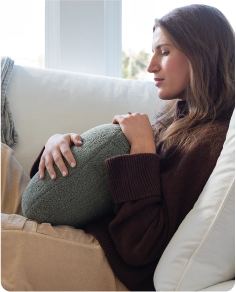
- Emily
Finding Support When You’re Feeling Touch-Starved
Feeling touch starved can be a challenging and isolating experience, but you don’t have to navigate it alone. Here are some ways to find support when you’re struggling with touch starvation.
Join Support Groups Online or In Your Local Community
Connecting with others who are experiencing similar challenges can provide validation and encouragement. Look for online support groups or community programs focusing on mental health, loneliness, or relationship issues.
Utilize Technology and Professional Help
If your symptoms aren’t improving despite your best, they’re getting worse, or they’re affecting your daily life, it’s essential to seek professional help. Thankfully, therapy is much more accessible today than in the past, thanks to modern technology.
If you’re not comfortable attending therapy in person, virtual therapy is a great option. You can have sessions via phone, video chat, or instant messaging. This allows you to receive support from the comfort of your own home at a time that’s most convenient for you.
Embracing Comfort and Overcoming Touch Starvation
In a world where physical touch is often undervalued, recognizing the signs of touch starvation is essential for our mental and emotional well-being. Whether it’s through pet therapy, self-care, or connecting with friends and loved ones, there are countless avenues to explore on the path to healing.
The Original Weighted Pillow by Quiet Mind offers an effective and convenient tool for finding comfort and relaxation when physical touch is lacking. Its soothing weight and comforting embrace provide a sense of security and connection whenever and wherever you need it.
